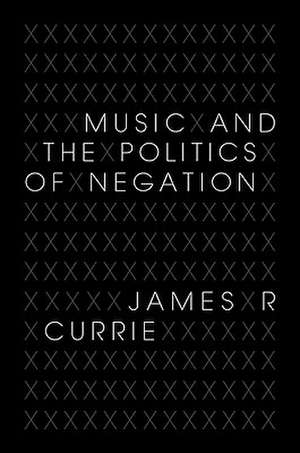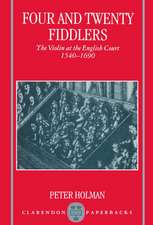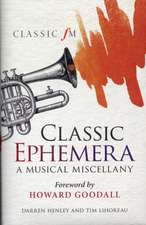Music and the Politics of Negation
Autor James R. Currieen Limba Engleză Hardback – 22 aug 2012
Preț: 228.47 lei
Nou
Puncte Express: 343
Preț estimativ în valută:
43.73€ • 47.52$ • 36.76£
43.73€ • 47.52$ • 36.76£
Carte tipărită la comandă
Livrare economică 21 aprilie-05 mai
Preluare comenzi: 021 569.72.76
Specificații
ISBN-13: 9780253357038
ISBN-10: 0253357039
Pagini: 248
Ilustrații: 21 music excerptss
Dimensiuni: 159 x 236 x 22 mm
Greutate: 0.52 kg
Editura: MH – Indiana University Press
ISBN-10: 0253357039
Pagini: 248
Ilustrații: 21 music excerptss
Dimensiuni: 159 x 236 x 22 mm
Greutate: 0.52 kg
Editura: MH – Indiana University Press
Cuprins
Preface: A No-Music; 1. Veils (Mozart, Piano Concerto K. 459, Finale); 2. Dreams (Fugal Counterpoint); 3. Exile (Haydn, String Quartet Op. 33, No. 5); 4. Enchantment (Mozart, La clemenza di Tito); 5. Forgetting (Edward Said)Notes; Bibliography; Index
Notă biografică
Recenzii
In prose as mobile as it is exacting, Music and the Politics of Negation upends the disenchantment of music within postmodernity. The book is part memoir, part history; part formal analysis, part hermeneutic excursion; part philosophical argument, part political manifesto. The author's "holographic" ear for 18th-century musical details (Mozart's twisted topoi, Haydn's syntactical infelicities) proffers surprising insights, whose meanings remain relevant today. Where else in the academic literature will we find Haydn's Op.33 effectively recruited for a Kantian ethical argument against Zizek?--Martin Scherzinger, NYU Steinhardt School of Culture, Education, and Human Development
Descriere
A radical re-assessment of the post-modern study of music

















